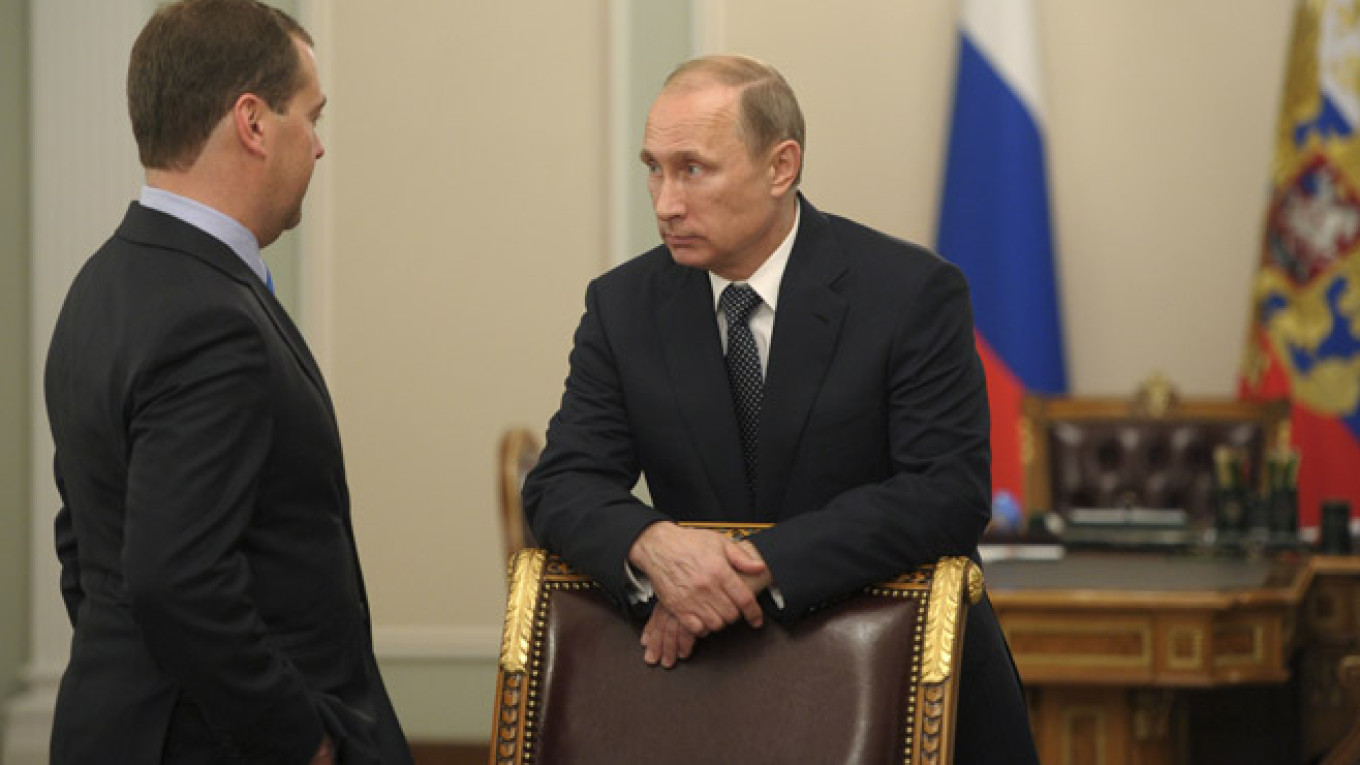Moscow's reaction to the downing of Malaysian Airlines Flight MH17 and the latest round of U.S. sanctions reveals signs of disarray over the strategic shift toward confrontation with the West.
Before last week, the Kremlin was eagerly upping the ante over Ukraine, seeking to isolate the U.S. by portraying it as overly confrontational while decoupling Europe and Asia with lucrative business deals. Some called for a "grand strategy" where Russia would lead the fight for a "more just world order" taking up other nations' anti-American grievances.
In early July, the deputy secretary of Russia's Security Council, Yevgeny Lukyanov, outlined a bizarre proposal to convene an international conference meant to negotiate the terms of "the new world order," giving Russia a "droit de regard" in its near abroad and a veto over U.S. actions.
The Kremlin's strategy cannot be sustained. The latest round of U.S. sanctions sends a message to investors that the U.S. views Russia's action in Ukraine as a serious threat to peace and stability in Europe.
This threat, according to the U.S., must be countered by forceful Western action, rendering any Russian asset toxic unless Russia changes course in Ukraine. Even before the downing of MH17 there was talk in Washington of putting Russia on the U.S. State Sponsors of Terrorism List. Now it is policy option on U.S. President Barack Obama's table. Public outrage in Europe is likely to push the EU to impose sectoral sanctions with devastating effects on Russia's economy.
Many Russian officials view the rising stakes with trepidation. They would prefer to find a way out by reaching a lasting accommodation with Kiev and the West. None other than the dean of Russia's foreign policy, former prime minister and spymaster Yevgeny Primakov, publicly called for an end to "the traveling circus of the Russian Spring" in eastern Ukraine.
The downing of MH17 provides Putin with an off-ramp to denounce the separatists and get Russia out of a war it will lose. There is no way to keep the separatist "republics," likely to be designated as terrorist organizations by the U.S., as part of the settlement. Disengaging now may have serious but manageable political costs for Putin, but staying the course would result in a humiliating defeat.
Russia does not need a grand strategy for a new world order anymore. It needs an exit plan from its handmade debacle in Ukraine.
Vladimir Frolov is president of LEFF Group, a government relations and PR company.
A Message from The Moscow Times:
Dear readers,
We are facing unprecedented challenges. Russia's Prosecutor General's Office has designated The Moscow Times as an "undesirable" organization, criminalizing our work and putting our staff at risk of prosecution. This follows our earlier unjust labeling as a "foreign agent."
These actions are direct attempts to silence independent journalism in Russia. The authorities claim our work "discredits the decisions of the Russian leadership." We see things differently: we strive to provide accurate, unbiased reporting on Russia.
We, the journalists of The Moscow Times, refuse to be silenced. But to continue our work, we need your help.
Your support, no matter how small, makes a world of difference. If you can, please support us monthly starting from just $2. It's quick to set up, and every contribution makes a significant impact.
By supporting The Moscow Times, you're defending open, independent journalism in the face of repression. Thank you for standing with us.
Remind me later.


